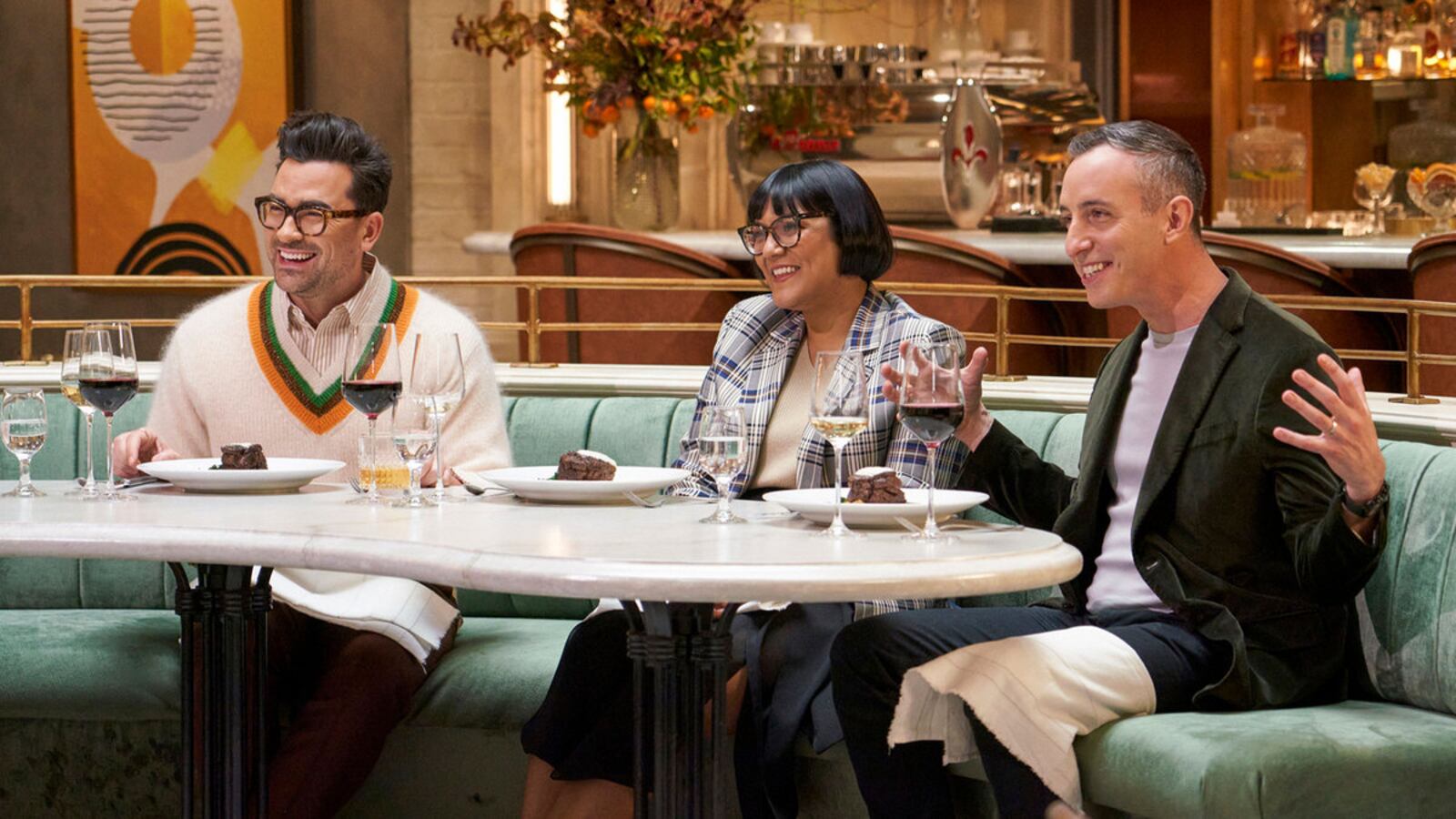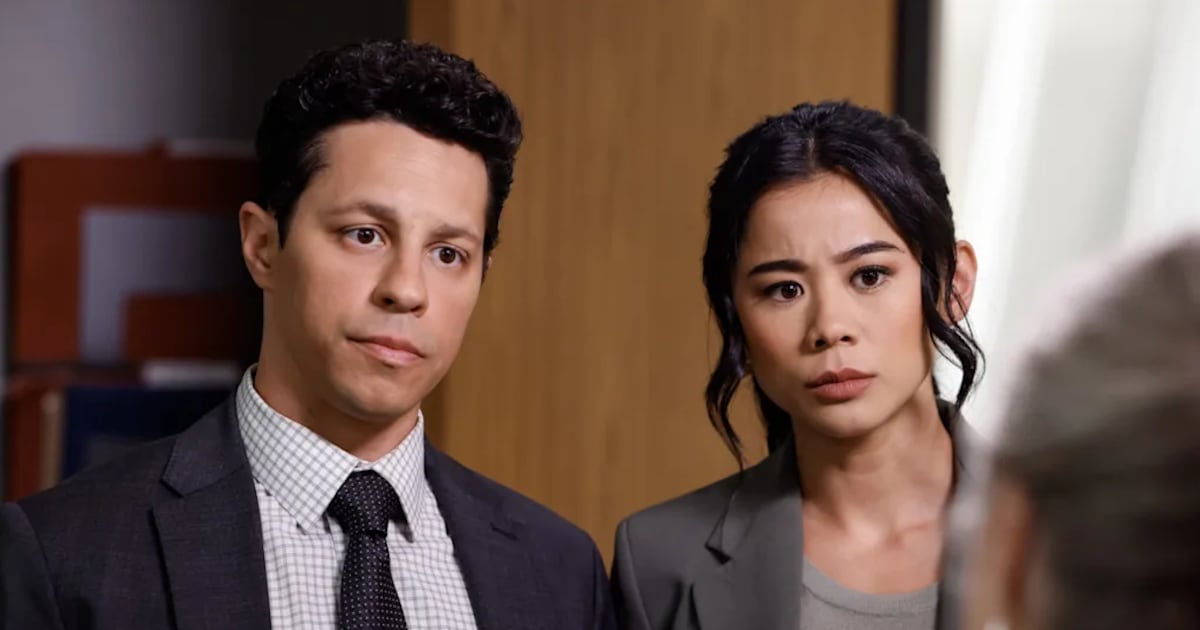As The Great British Baking Show continues to flounder at an increasingly nightmarish pace, after a controversial “Mexican Week,”, viewers might be growing peckish for a new comfort food competition show to warm their bellies. The Big Brunch, Dan Levy’s new morning meal-inspired tournament, seems like the perfect fix. Scones, croissants, and the sweetest batch of contestants—could this be the replacement for GBBS we need?
Sadly, while The Big Brunch has all the fixings for a hearty meal, the final product is far too underseasoned to be as delectable as the cooking shows that have come before it. While watching lower-stakes food competitions—like Nailed It! and GBBS, as opposed to more serious shows like Chopped or Kitchen Nightmares—makes for perfect comfort viewing, The Big Brunch dips too far into sappiness. The HBO Max show lulls its audience back into a Sunday morning snooze, instead of inspiring them to go have a boozy brunch of their own.

The Big Brunch does have a great concept, which shines in the dishes that the contestants present to the judging table. The show follows the same recipe as nearly every other serial food competition: In each challenge, the cooks must prepare one appetizer and one main course, both brunch-focused. Every episode has a different brunch-related theme, like carbs or plant-based foods. At the end of the episode, one chef is crowned the winner and gets a slight advantage in the next round, and one chef is sent home.
The rest of the ingredients are near-perfect. Host (and Schitt’s Creek goofball) Levy quips his way through the challenges, teasing contestants for their intense focus on food while he slurps a Bloody Mary around the kitchen. The judges, Bon Appétit whistleblower Sohla El-Waylly and Eleven Madison Park restaurateur Will Guidara, boast an encyclopedic knowledge of brunch items and food in general. But the trio seems a little bit bored at the table, as they gossip about the lack of salt in their contestants’ dishes.
The contestants themselves work hard to be likable. The show dedicates plenty of time to prove they’re competing for good reasons, with some competing to open restaurants that shuttered in the pandemic, looking to fund a cooking class for underprivileged folks who want to be chefs, or want to use the $300,000 prize to implement more sustainable cooking practices in the world. And unlike other cooking competition shows, in which each chef must make the same specific dish, The Big Brunch allows its contestants to highlight their strengths with challenges loose enough to inspire a variety of dishes.

Unfortunately, what The Big Brunch fails to grant these folks is the time to really flaunt their actual cooking skills on camera. Each challenge takes around an hour, hardly enough time for the contestants to cook and walk any of the hosts through their process. By not giving cooks the time to do both, The Big Brunch suppresses most of the cooking factor of the show. With series like The Great British Baking Show and Cutthroat Kitchen, for example, part of the fun in the show is watching the cooks stress about their dishes, whisking egg whites furiously while they balance three other tasks at the same time.
Dan complains about this as he hosts, too. He’ll enter the kitchen and poke the chefs to talk to him about their dish—he’s often met with complete and total silence. Part of this seems to be in the one-hour time constraint, but it also seems like these chefs are all too caught up in being pleasant. They forget that on a reality TV cooking show, their job is to be entertaining, too. A handful of them joke around (for example, J, a strong competitor from the start, hilariously beats Dan to every “time remaining” call), but most seem far too nervous to be on camera. This nervousness also shows in their cooking. In the first few episodes, all we hear Sohla say to the contestants is, “More seasoning!” This gets boring fast—please, for the love of reality TV, add some salt to your dishes, so the judges have other things to critique.
Instead of spotlighting the chefs’ cooking, The Big Brunch opts for longer interludes of the chefs’ personal and professional lives. These anecdotes are heartwarming; however, more often than not, they tease who will win and lose the challenge of the day. If a contestant has a 10-minute anecdote, clearly, they’re getting the boot on the challenge. Still, the contestants have such inspiring insight on sustainable food sourcing, plant-based diets, and saving the environment via foodways that it’s worth the slight spoilers.
The heart of The Big Brunch beats strong, with three food-loving hosts and a bevy of brunch-pilled darlings, and hopefully, after a rough start, the HBO Max series can sharpen its knives and return for an even better Season 2. Brunch is a special, special meal, a great starting point for a food competition show—the New York Times recently put the importance of the meal in full, brilliant perspective, in honor of the show—but we need to actually see the food prep. Get us hungry, make us thirst for the mimosas, and serve up brunch!
The Big Brunch premieres its first three episodes on Nov. 10, unveiling new episodes weekly on Thursdays.






